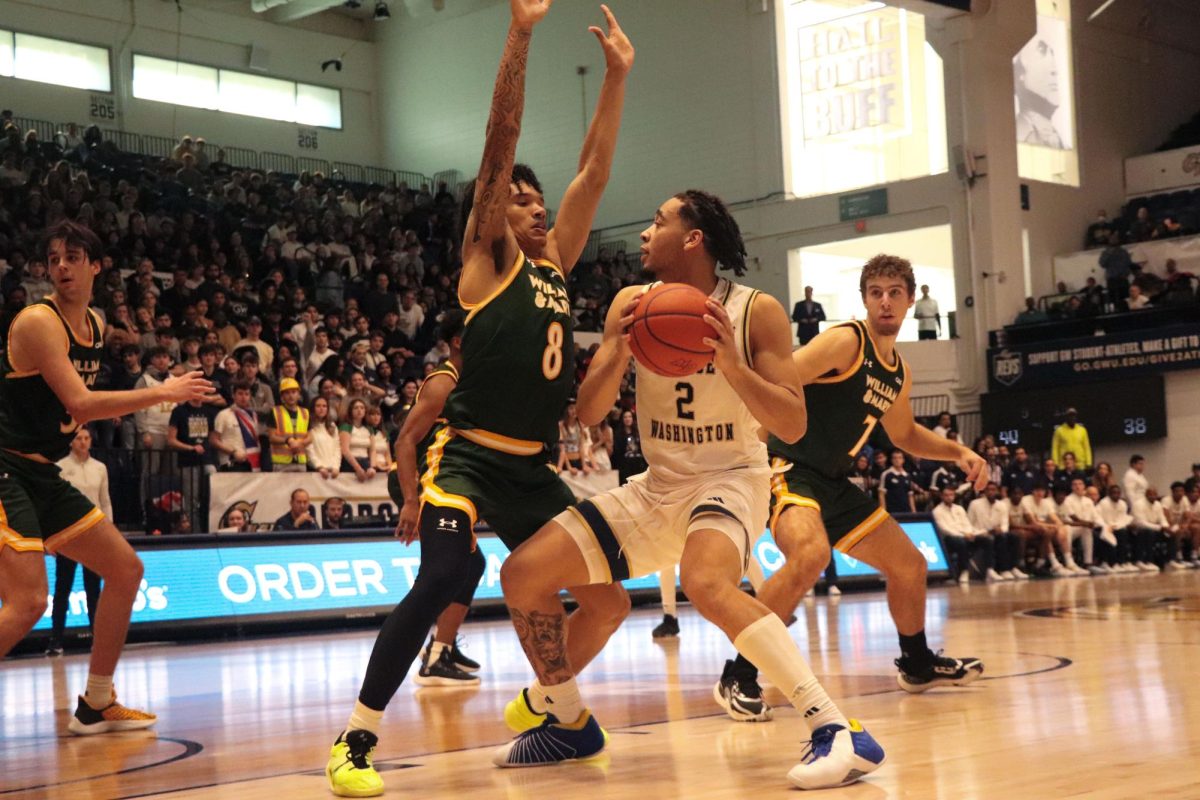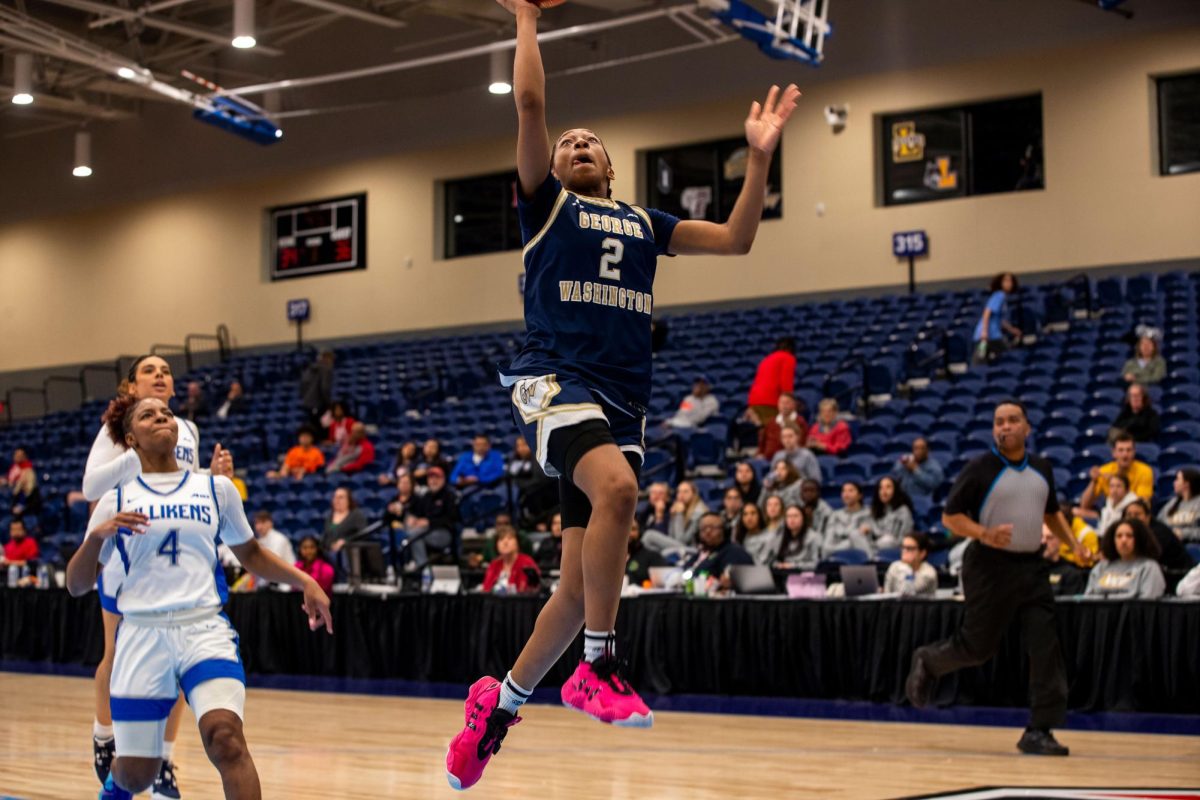A federal workplace discrimination agency urged a judge to reject GW’s motion to dismiss its sex discrimination lawsuit against the University.
After the U.S. Equal Employment Opportunity Commission filed the suit against GW in October, the University asked the court to throw out the case last month. In a 37-page document filed in D.C.’s U.S. District Court Wednesday, the commission argued the motion to dismiss should be denied because GW’s counterpoints do not invalidate the claims in the EEOC’s lawsuit.
The EEOC’s suit alleged that GW’s athletic department violated Equal Pay Act and Title VII – which prohibits employee sex discrimination – by paying Sara Williams, a former executive assistant to athletic director Patrick Nero, about $40,000 less than a male employee in a “substantially equal” position.
The University responded more than a month later with a motion to dismiss, claiming the EEOC did not offer enough evidence to prove equal pay violations or discrimination, according to the motion.
In response to the request for dismissal, the EEOC filed a memorandum last week to oppose the arguments presented in GW’s motion, arguing Williams was the victim of “serious and willful” discrimination in payment and treatment when compared to a male coworker.
The EEOC then filed a proposed order Thursday, asking for Colleen Kollar-Kotelly, a U.S. District Court judge, to deny GW’s motion to dismiss.
Kate Northrup, a lawyer representing Williams and the EEOC, said Williams – who currently works as an associate in GW’s Business Management and Analysis Group – would not comment on the situation.
“The EEOC’s position is addressed in its response and we look forward to favorable resolution of the issues,” Northrup said.
The University did not return request for comment.
The EEOC presented job descriptions and resumes in the memorandum for both Williams and the male employee, Michael Aresco, who worked at GW until April. The commission argued Williams’ position was equivalent enough to require the University to pay her the same amount and that the University’s opposing claim was not supported by available evidence, according to the memorandum.
She was payed roughly half the salary Aresco received, according to the documents.
“The University described her as performing work that is at least equal to the work described in the Special Assistant job posting,” according to the memorandum. “In fact, the University’s description of Williams’ job shows that she performed work that required greater skill, effort and responsibility than the work Aresco was hired to perform.”
The EEOC is requesting the court order GW to end all discriminatory practices against women and pay back wages, benefit losses and damages to Williams in an amount to be determined at trial, according to the complaint filed in October.
The commission stated that GW’s argument that they failed to present “a plausible claim” is invalid because the EEOC satisfied the necessary steps in its complaint, according to legal precedent cited in the memorandum.
“A complaint needs to plead only enough facts to [nudge] a claim to relief…across the line from conceivable to plausible,” according to the memorandum.
GW claimed in the motion to dismiss that Williams’ job listed her main duty as providing “ordinary” and not “high-level” administrative support. The EEOC alleges that is “demonstrably incorrect” and that her position’s description does not include the word “ordinary,” according to the memorandum.
GW’s motion to dismiss also claimed the EEOC did not engage in proper mediation with the University before the initiation of the lawsuit.
But the EEOC argues that equal pay claims do not require any conciliation attempts, but must communicate in some way and try to remedy the conduct through discussion – a bar the commission has passed, according to the memorandum.
“The Court should conclude that no conciliation efforts were required as to the EPA claims and, as to the Title VII claims, that EEOC satisfied administrative procedures pursuant to the standards,” according to the memorandum.
If the court does not believe the EEOC satisfied the necessary standards, the commission requested a chance to amend its complaint instead of granting the motion to dismiss, according to the memorandum.
Dani Grace contributed reporting.




